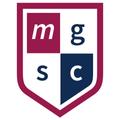Year 7 Enhancement

The program offers extension studies in English, Mathematics, Science and Humanities.
7 Enhancement English
Semester One
Students explore the autobiography 'Chinese Cinderella' and develop an analytical framework for essay writing. Students study the features of narrative writing such as characterisation, descriptive language, plot and setting to complete a creative response. There is a significant focus upon literacy throughout the semester as students undertake journalling tasks and regular grammar and spelling activities.
Semester Two
Students undertake a study of the narrative construction, linguistic features, characters and thematic concerns in the novella 'Coraline'. Students explore adaptations and transformations by comparing and contrasting the novella with the film 'Coraline’, and choosing their own text to compare with the Novella focusing on how meaning differs across prose and film. There is a significant focus upon literacy and the ways that representations change through adaptation. Students then explore creative responses to texts through the free verse novel ‘Sister Heart’.
Assessment
Narrative Writing. Students study the features of narrative writing and create an original piece of "portal fiction", accompanied by a statement of intention which justified their literary choices.
Key Quote Analysis. Students complete an in-depth analysis of key quotes from the autobiography 'Chinese Cinderella' by exploring the thematic and symbolic meanings of the excerpts.
Text Response Essay. Students analyse the novel 'Chinese Cinderella' and write a text response essay to demonstrate their understanding of the text and their ability to write a sustained response to an essay topic.
7 Enhancement Maths
Semester One
Students explore concepts of measurement including unit conversions, perimeter, area, surface area and volume. They consolidate their knowledge relating to whole numbers by studying concepts such as prime numbers, square, cube and index numbers, and multiples and factors. They also consider the function of integers (negative numbers) and carry out a variety of mathematical operations using these numbers. Various statistics ideas are explored, including how to select and draw appropriate graphs with and without technology, calculate measures of centre and describe and interpret graphical displays. Throughout the semester, students are encouraged to develop key skills and apply their knowledge to solve a variety of problems.
Semester Two
Students continue to develop fluency in number skills, solving problems with fractions and decimals. They are introduced to the process of substitution in the algebra unit, solving linear equations and using the four operations to simplify algebraic expressions. They learn more about coordinates, plotting points on the cartesian plane and explore linear graphs. They study geometry by classifying, measuring and calculating angles and exploring properties of two dimensional shapes. They also cover the language of probability, how to calculate theoretical and experimental probabilities and learn to construct and interpret a variety of probability diagrams.
Assessment
Students will complete three CAT tasks per semester covering the Victorian Curriculum areas of Number and Algebra, Measurement and Geometry and Statistics and Probability. In addition to CAT tasks students will complete additional tasks as both formative and summative assessment. CAT tasks are a variety of topic tests, problem solving analysis, collaborative assignment or scenario based applications of the mathematics studied.
7 Enhancement Science
Semester One
Students are introduced to the science laboratory including the specialised equipment and safety rules. They use knowledge of mixtures to investigate a variety of separation techniques. Throughout the semester students engage in a variety of practical and investigative tasks to develop practical science skills.
Semester Two
Students explore both contact and non-contact forces including gravity, magnetism, friction and the electrostatic force. The forces involved in a falling parachute are investigated through the design and reporting of a practical investigation. Students identify differences within and between groups of organisms; and understand that classification helps organise this diversity. Interactions between organisms are studied by identifying different relationships between and within species and through the understanding of food webs.
Assessment
Students will complete two common assessment tasks (CAT) in each semester. In each semester students will undertake a scientific investigation as well as a variety of tasks which may include topic tests, writing a storybook explaining a scientific concept or a research project
7 Enhancement Humanities
Semester One
In Semester One, students will build their historical skills and knowledge in a critical study of an Ancient civilisation of their choice and an inquiry-based study of a woman in history. In this study, students will develop their research skills as they investigate and interrogate the past.
Semester Two
In this semester, students will be developing their geographic and economic understandings. Students will explore the notion of liveability with regard to their local Australian context as well as major cities around the world. In doing this, students will engage with field work, investigative research and collaborative practices. Students will also explore the process of establishing and running a business as well as exploring the availability of water. They will do this with discussion and investigation into the relationship First Nations people have with the environment.
Assessment
Students will complete two common assessment tasks (CAT) in each semester. In Semester One, students will complete a research grid and write a historical essay based on their extensive research. Students will also produce a presentation on their chosen woman in history. In Semester Two, students will create a multimedia presentation to sell their business to a panel to invest in their ideas. They will also investigate water systems and rivers, leading to a case study on a river.
Throughout the year students will be engaging in formative research tasks, oral presentations, design tasks, source analysis, case studies and reports.
